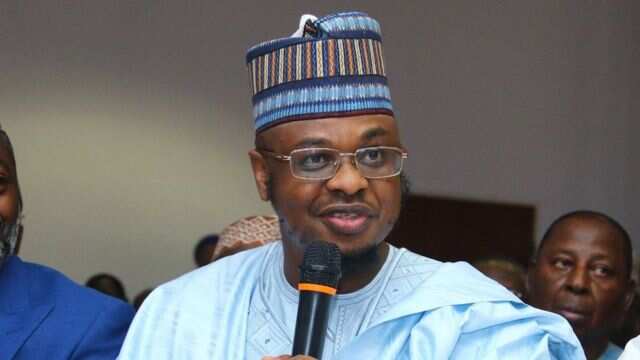Northern Muslim Clerics in Politics: Pantami and Lessons From Two Wazirayni of Zazzau by Waziri
Disclaimer: The views expressed in this interview/article are the author’s own and do not necessarily represent the editorial policy of Legit.ng. Your own opinion articles are welcome at info@corp.legit.ng — drop an email telling us what you want to write about and why.
Contact us if you have any feedback, suggestions, complaints or compliments. We are also available on Facebook and Twitter.
Editor's note: In this piece, Ibraheem Waziri, writes about the controversies surrounding the calls for the dismissal of the minister of communication and digital economy, Isa Pantami.
PAY ATTENTION: Join Legit.ng Telegram channel! Never miss important updates!
For a starter, a large part of the territories of now Northern Nigeria, seized by the colonialists in 1903 and later merged with other territories southward to form the Nigerian state in 1914, were before, under the administrative control of the then Sokoto Caliphate; a state founded by Islamic Scholars, clerics and led by their agents, the Emirs!
This is why till today Islamic scholars and clerics have remained very formidable groups that define what civil advocacy means in the region as much as they anchor all shades of the discourses about meaningful development among the Muslims.

Source: Twitter
Shaykh Isa Ali Pantami, a serving cabinet minister of the federal government, who also can be seen to be, symbolically, a representative of the northern Muslim scholarly and clerical establishment, was alleged to be having links with an officially designated terrorist group, BakoHaram, and is therefore on a terrorist watch-list of the world-leading country fighting terrorism, the USA.
Though the newspaper, Daily Independent, which first published the story, 11/04/2021, had long withdrawn it and tendered an apology to the public and the Minister Pantami; the matter continued to trend, with great effort being put to exhume his old lectures that seemed supportive of international terrorism, dating back 20 to 25 years back.
That was to say, at another period when the largely peaceful dialogue between the Northern Nigerian Muslim clerical establishment and the Nigerian nation was not near achieving reasonable compromise; and the country was held under the grip of military dictatorship or was early into the current fourth republic.
Also then the conflicts in the other Muslim nations between every force that would claim Islam for its cause was finding sympathy among the Northern Nigerian Muslims uncritically.
Things have moved to a height by the year 2009 when a fringe Muslim group (Boko Haram) in the region moved the frontiers of this dialogue into the battlefield. That has proved to be an eye-opener to the mainstream scholars and clerics, belonging to various sectarian persuasions, about what the possible alternative their numerous fiery preaching could open for Nigeria. They then substantially mellowed!
By 2015, Nigeria had a popular and fiery northern Muslim preacher, in the name of Shaykh Isa Ali Ibrahim Pantami for the first time in its history, accepting to serve the federal government in a very relevant National Information Technology Development Agency (NITDA) as its steering director. He later became a federal cabinet member as a Minister of Information and Digital Economy.
This signalled that a reasonable milestone in the continuous dialogue between the northern Nigerian clerical establishment and the Nigerian nation has been recorded; and among other things, the establishment has symbolically reached a more malleable compromise with the idea of Nigeria as a nation with its quasi secular character.
The current imbroglio started by the Daily Independent newspaper, and the subsequent revelations, which are not without valid reasons, exposed Shaykh Pantami as a potential threat to the survival of the Nigerian nation. It led him to publicly retract the said toxic opinions he once voiced out decades ago.
This, good as it is, still leaves the Nigerian nation to choose between one of the two options. If the nation puts him away it will throw out the great potential seen in closing the remaining gap between it and the northern Nigerian clerical establishment, a guarantee for a more promising probable national survival and prosperity.
If it chooses to retain him, it will continue to court the rage of non-Muslims and other nationalists who genuinely feel Nigeria doesn't need its reformed detractors in place of authority for it to survive and thrive.
PAY ATTENTION: Install our latest app for Android, read the best news on Nigeria’s #1 news app
However, the chief concern of this piece is the opinion that is not so prominent in the current controversy but has long been in the public space and largely shared by and among Northern Nigerian Muslim intellectuals, publicly or in private.
That Pantami has long made a compromise not with the idea of Nigerian nation alone but with its dirty game of power and politics. He had since abandoned his constituency of Islamic scholarship and clericalism that is known with the principle of telling truth to power since before and after the 19th-century Jihad.
Source: Legit.ng




